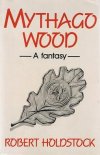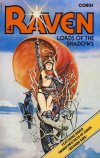Brander
Legendary Pubber
- Joined
- Jun 22, 2018
- Messages
- 270
- Reaction score
- 709
That's essentially how I ended up moving to Savage Worlds. By the time I was done with Gurps, it wasn't what actual Gurps players wanted to play and no one else cared.By the time they were done hacking at the rules it wasn't really GURPS anymore.



 ) uses all of the D&D conceits, and even then, I'm not sure all of them would be best represented by D&D.
) uses all of the D&D conceits, and even then, I'm not sure all of them would be best represented by D&D. ).
). .
.

 .
. !
! ) don't mention non-magical methods to prevent your victim getting raised, the witch sheet has an ability to take a second familiar without any mention of how incredibly unusual it was for Vlad to do so).
) don't mention non-magical methods to prevent your victim getting raised, the witch sheet has an ability to take a second familiar without any mention of how incredibly unusual it was for Vlad to do so).
